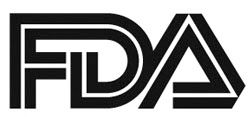BLA Submitted for Liso-Cel Therapy in Patients With Large B-cell Lymphoma
A Biologic License Application has been submitted for isocabtagene maraleucel, a chimeric antigen receptor T-cell agent, as a treatment for adult patients with relapsed or refractory large B-cell lymphoma after a minimum of 2 prior therapies, Bristol-Myers Squibb, the manufacturer, reported in a press release.

A Biologic License Application (BLA) has been submitted for isocabtagene maraleucel (liso-cel), a chimeric antigen receptor (CAR) T-cell agent, as a treatment for adult patients with relapsed or refractory large B-cell lymphoma (LBCL) after a minimum of 2 prior therapies, Bristol-Myers Squibb, the manufacturer, reported in a press release.1
The application was submitted to the FDA based on the results of the TRANSCEND NHL 001 trial, which is evaluating the safety and efficacy of liso-cel.1According to the data presented at the American Society of Hematology Annual Meeting, the overall response rate observed from treatment with liso-sel was 73% (95% CI, 67-78). The complete response rate (CR) was 53% (95% CI, 47-59). The median follow-up was 10.8 months in these patients and the duration of response among patients who achieved a CR was not reached. The median progress-free survival observed was 6.8 months (95% CI, 3.3-11.8). Finally, the median overall survival observed was 19.9 months (95% CI, 10.9-not reached). The study met all of its primary and secondary end points.2
From these data, the investigators found that liso-cel infusion prolonged PFS compared with the immediate prior therapy administered to the patients.
A total of 268 patients were treated with liso-cel. Of those patients, % had a grade 3 or higher treatment-emergent adverse events (TEAE) which included neutropenia (60%), anemia (37%), and thrombocytopenia (27%). Central nervous system (CNS) or neurological events occurred in 47% of the study patients. Occurrences of cytokine release syndrome 42% of patients, however, only 2% of them were grade 3 or higher. There were 4 patients observed with TEAEs that were grade 5 or above (diffuse alveolar damage, pulmonary hemorrhage, multiple organ dysfunction syndromes, cardiomyopathy) . In 37% of patients, grade 3 or high cytopenia was prolonged.
The safety profile appeared to be consistent across different age groups, patients with different histologies, and those with organ dysfunction.
The investigators concluded overall that liso-cel had durable clinical activity and a favorable safety profile when administered as CAR T-cell therapy to patients with relapsed/refractory LBCL.
TRANSCEND NHL 001 is a phase I, multicenter, open-label study for which the co-primary end points were TEAEs, dose-limiting toxicities, and ORR. The secondary end points of the study were CR rate, DoR, PFS, OS, and health-related quality of life.
The study enrolled patients who were aged 18 years and older with relapsed/refractory B-cell non-Hodgkin lymphoma, PET-positive disease and with an ECOG performance status of 0 or 1. Patients were required to have adequate bone marrow, renal, hepatic, pulmonary, and cardiac function and adequate vascular access.
Individuals with active CNS, history of another malignancy, active hepatitis B, hepatitis C, or human immunodeficiency virus, uncontrolled systemic fungal, bacterial, viral, or other infection, graft-versus-host disease, history of cardiovascular disease and presence of clinically significant CNS pathology were excluded from the study.
TRANSCEND NHL 001 is actively recruiting patients to be evaluating on liso-cel CAR T-cell therapy. The study is expected to conclude in December of 2020.
Previously, liso-cel had been granted Breakthrough Therapy Designation and Regenerative Medicine Advanced Therapy designation by the FDA for the treatment of patients with relapsed/refractory large B-cell lymphoma, including those with diffuse large B-cell lymphoma.
References
- Bristol-Myers Squibb Announces Submission of Biologics License Application for CAR T-Cell Therapy Lisocabtagene Maraleucel (liso-cel) to FDA [press release]. Bristol-Myers Squibb: Princeton, NJ; December 18, 2019.https://bit.ly/36RATGm. Accessed December 18, 2019.
- Abramson JS, Palomba ML, Gordon ML, et al. Pivotal Safety and Efficacy Results from Transcend NHL 001, a Multicenter Phase 1 Study of Lisocabtagene Maraleucel (liso-cel) in Relapsed/Refractory (R/R) Large B Cell Lymphomas. Presented at: 2019 American Society of Hematology Annual Meeting. Dec 7, 2019. Abstract 24